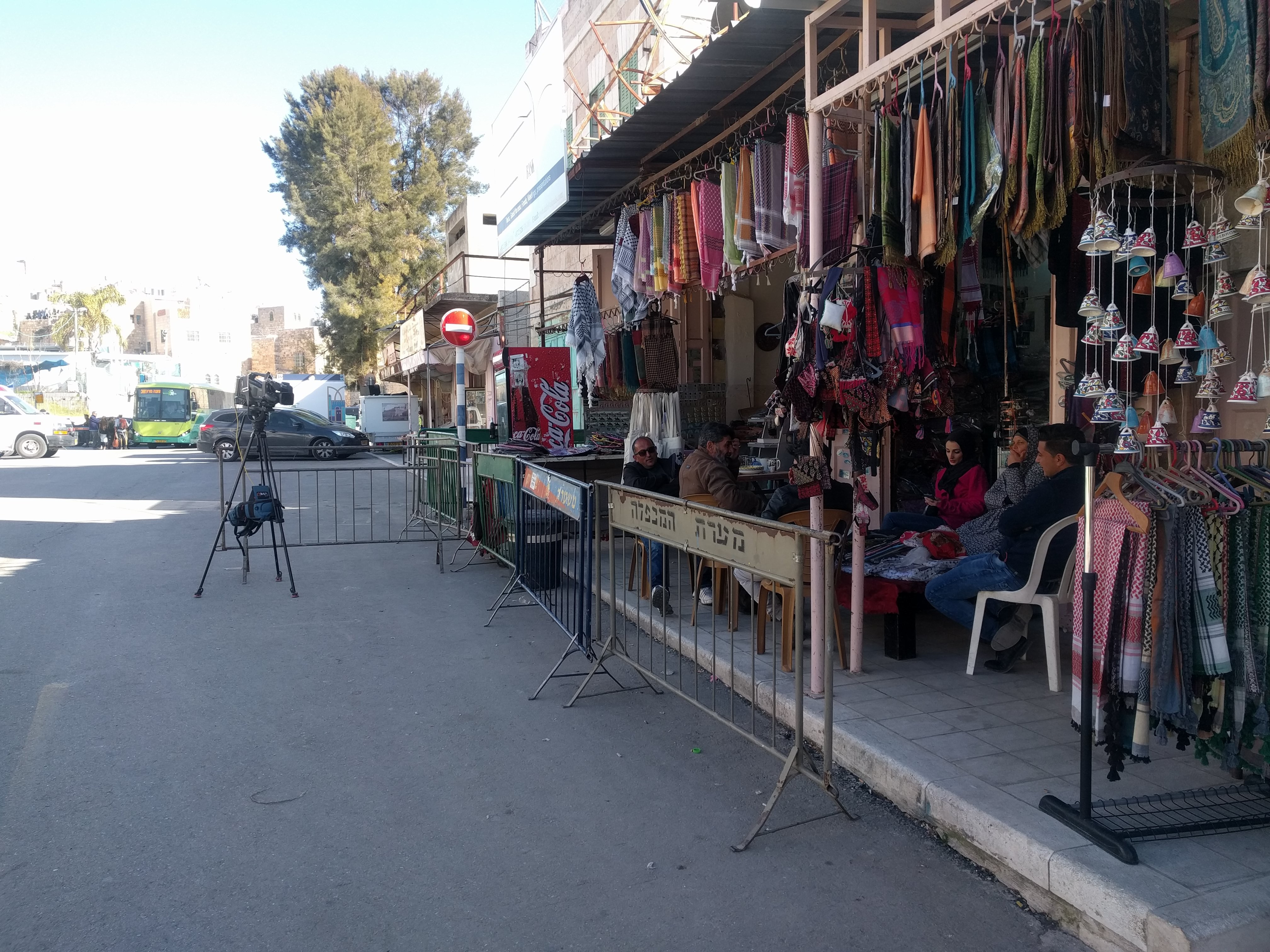-
Anat Cohen assaults ISM volunteers in Al-Khalil (again)
[three_fifth_last]February 08, 2019 | International Solidarity Movement, Al-Khalil team | Al-Khalil, occupied Palestine ISM volunteers were detained by Hebron Police for over 8 hours after Anat Cohen assaulted them outside the Qurtuba school checkpoint on Thursday. In direct response to the violence waged against Palestinians at the hands of illegal settlers (and the military that […]
-
“Hundred Million Dollar Home” Hebron Shop Keeper Punished for Resistance to Occupation
2nd February 2019 | International Solidarity Movement, Al-Khalil team | Hebron, occupied Palestine Today, our good friend Abdulraouf Al-Mohtaseb’s, the famous owner of the 100 Million Dollar home , had his shop enclosed by steel barricades. We condemn this blatant act of aggression by the IDF against shop owners in the Old City of Al-Khalil. This […]
-
Call for volunteers after TIPH & EAPPI exodus from Hebron
1st February 2019 | International Solidarity Movement, Al-Khalil team | Hebron, occupied Palestine In the wake of TIPH being ejected from Al-Khalil (Hebron), it’s critical for ISM to sustain an international presence to protect the Palestinians. After an Israeli settler murdered 29 worshippers while they were praying at the Ibrahimi Mosque in Hebron in 1994, […]
Action Alert An Nabi Saleh Apartheid Wall Arrests BDS Bethlehem Bil'in Cast Lead Demonstration Denial of Entry Ethnic Cleansing Farmers Gaza Global Actions Hebron House Demolition International law Israeli Army Jerusalem Live Ammunition Nablus Ni'lin Prisoner Ramallah Rubber-coated steel bullets Settlement Settlers Settler violence Tear-Gas Canister Video



